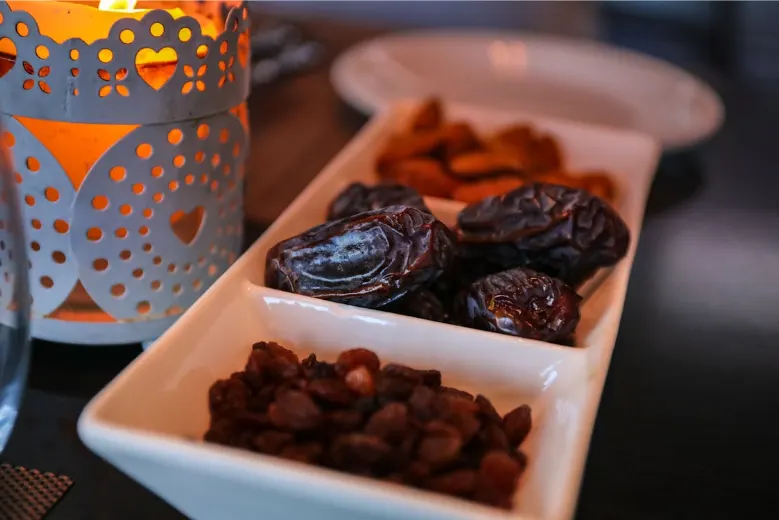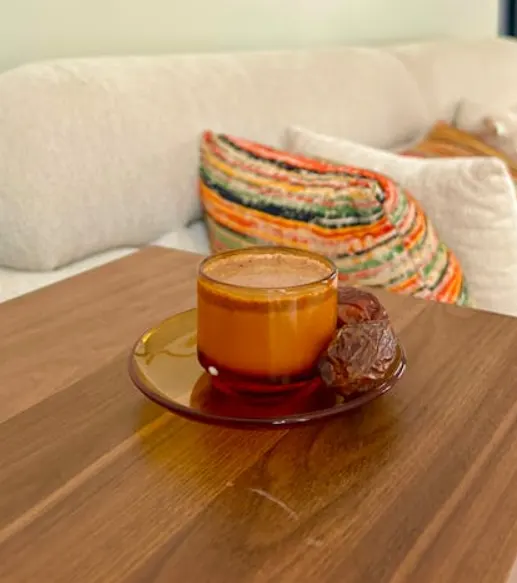
Ras Al Khaimah’s Date Farms and Local Produce Markets
- Blog
-
Aug 25
- Share post

Many people think of Ras Al Khaimah for its beach resorts and mountains, but it is also home to some of the UAE’s most beautiful date farms and vibrant produce markets. For generations, farming has been a way of life here, and the traditions around growing and selling food are still very much alive.
Visiting these farms and markets gives you more than just a shopping trip; it’s a glimpse into local heritage. You see how farmers nurture date palms year after year, how produce is grown with care, and how markets bring communities together over fresh food and friendly conversation.
The Heritage of Date Farming in Ras Al Khaimah
Date palms have been part of Ras Al Khaimah’s landscape for centuries, long before the modern infrastructure and supermarkets we know today. In the past, they were not just a food source but a cornerstone of survival, offering nutrition, shade, and even materials for shelter and tools.
Every part of the palm had a use: its fronds for weaving baskets and mats, its trunks for building, and its fruit for sustaining life in the harsh desert climate. The knowledge of how to grow and care for date palms has been carefully passed down through families.
Many farmers still use the same techniques their grandparents relied on, such as hand pollination during the flowering season to ensure a good yield, or careful pruning to allow sunlight and airflow to reach the fruit. Harvesting is still often done by hand, with skilled climbers ascending the tall trunks to collect ripe bunches before they are sorted and dried.
Ras Al Khaimah’s natural environment plays a big role in the quality of its dates. The emirate benefits from a combination of warm temperatures, low humidity during key growing periods, and fertile soil enriched by centuries of irrigation from underground wells and natural springs.
These conditions create ideal growing environments for high-quality date varieties, many of which are prized across the UAE and beyond. In rural areas, rows of tall palms stretching toward the horizon are more than just a scenic view; they are a living symbol of resilience, hard work, and the deep connection between the land and its people.
Varieties of Dates Grown in the Region
Not all dates taste the same, and Ras Al Khaimah is known for producing several well-loved varieties. Khalas dates are soft and caramel-like, often eaten fresh during the harvest season. Khenaizi dates are darker and slightly firmer, with a rich sweetness. Fard dates, which are small and dark brown, are popular for their long shelf life and deep flavor.
The harvest season usually starts in late summer and continues into early autumn, with each variety ripening at a slightly different time. Visiting during this period means you can try them at their freshest, often straight from the palm.
A Look Inside Local Produce Markets
The local markets in Ras Al Khaimah are more than just places to buy food—they are lively meeting points where traditions meet everyday life. Arriving early is part of the experience. Before sunrise, vendors set up their stalls, arranging crates of freshly picked dates, baskets of ripe tomatoes, cucumbers, and zucchini, bundles of mint and coriander, and jars of golden honey collected from hives in the surrounding valleys. Seasonal goods like pomegranates, figs, or mangoes appear during their peak months, adding variety to the displays.
Many sellers are farmers or family members who have tended their crops themselves, so conversations about farming methods or recipes come naturally. You might hear someone explaining how certain dates are best eaten fresh, while others are better for making syrup or stuffing with nuts. The direct connection between grower and customer creates a sense of trust that supermarket aisles rarely match.
Traditional souks, with their narrow walkways and open-air stalls, have an atmosphere shaped by decades of trade. The voices of vendors calling out prices, the scent of spices drifting from nearby shops, and the rhythmic sound of weighing scales all add to the charm. Modern produce markets, on the other hand, offer cleaner layouts, refrigeration for perishable items, and easier parking, catering to shoppers who prefer convenience while still valuing fresh, local food. Whether in a bustling souk or a modern facility, the shared focus remains the same: supporting local agriculture and bringing high-quality produce to the community.

Seasonal Events and Farmers’ Gatherings
Ras Al Khaimah celebrates its agricultural roots through a variety of seasonal events, many of which center on the date harvest. The annual date festivals are among the most anticipated, drawing farmers, traders, and visitors from across the UAE.
These festivals are more than marketplaces; they are showcases of skill and heritage. Farmers compete in categories like “best date bunch” or “largest yield,” while cooking demonstrations show how dates can be incorporated into both traditional Emirati dishes and modern recipes.
Educational booths often share information about cultivation techniques, irrigation methods, and the nutritional benefits of dates, making the event valuable for both locals and tourists.
During the cooler months, farmers’ markets pop up in parks, community centers, and designated market squares. These events expand beyond dates to feature citrus fruits like oranges and lemons, leafy greens, root vegetables, and locally produced olive oil.
Artisanal goods, such as handmade jams, pickles, and spice blends, also find their place here. Live music, cultural performances, and children’s activities often accompany the markets, turning them into family-friendly outings.
For many small-scale farmers, these gatherings are essential opportunities to reach customers directly, receive feedback, and build lasting relationships. For visitors, they are a chance to experience the full scope of Ras Al Khaimah’s food culture: tasting, learning, and taking home something grown just a few kilometers away.
Supporting the Local Community
Buying from these markets does more than put fresh food on your table; it helps sustain local livelihoods. Many farming families depend on direct sales to cover their expenses and invest in the next season’s crops. The markets also encourage younger generations to stay connected to agriculture, ensuring that traditional knowledge is not lost.
In addition, relying on locally grown produce reduces the need for imported goods, which helps strengthen food security in the region.
Conclusion
Exploring Ras Al Khaimah’s date farms and local produce markets is an experience that connects you to the land, the people, and the history of the emirate. It is a reminder that some of the best food comes from just a few kilometers away, grown with care and pride.
Guide UAE brings together the best of what the country has to offer, from traditional markets to dining, shopping, and entertainment. Visit GuideUAE.ae to discover trusted local businesses and experiences across the UAE, all in one place.
Frequently Asked Questions
How can visitors tour date farms in Ras Al Khaimah?
Several farms offer guided tours where visitors can see the cultivation process, taste fresh dates, and learn about traditional farming methods. Bookings are often required, especially during the harvest season when activities are at their peak.